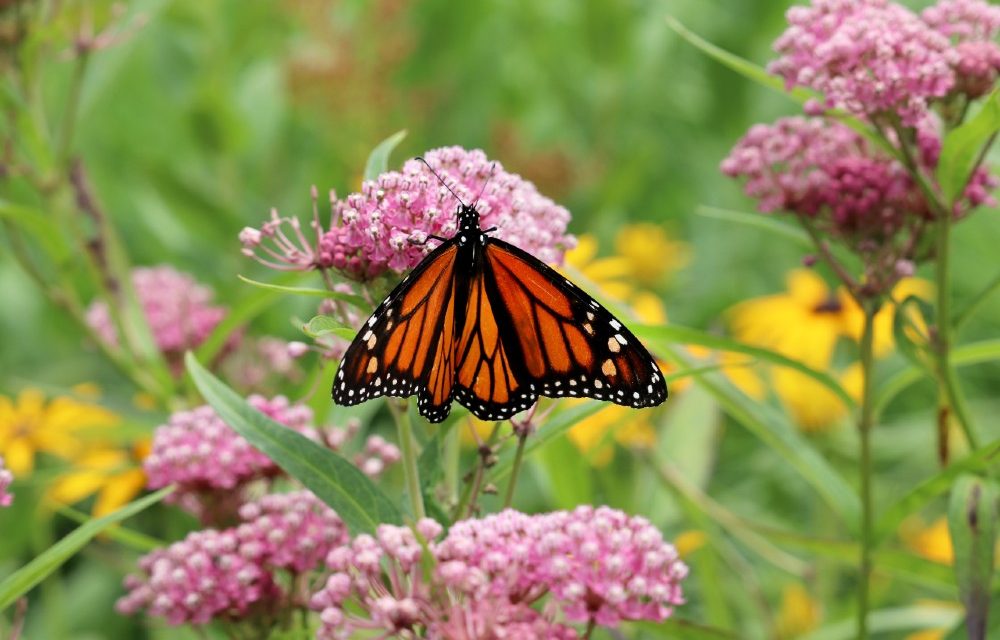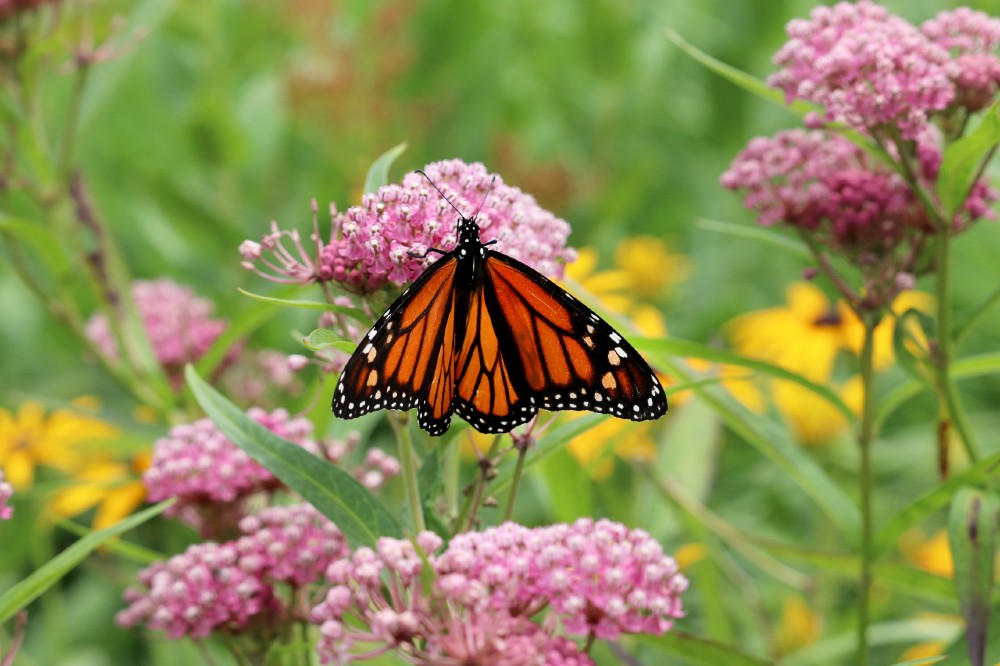The iconic migratory monarch (Danaus plexippus plexippus) is now two steps away from extinction, with a first-ever listing as an “Endangered” species on the International Union for the Conservation of Nature (IUCN)’s Red List.
North American monarchs make the longest migration of any insect species, traveling thousands of miles from wintering in Mexico and California to spending their summers in Canada and the northern United States.
The IUCN noted that an ever evolving cadre of threats – including climate change, pesticide use, urbanization, illegal logging, and habitat loss to make room for agriculture operations – has devastated the butterflies’ populations, with a western population down 99.9 percent and an eastern population shrunk by 84 percent since the 1980s.
“It is tragic to see one of the world’s most well-known butterfly species, with remarkable migratory behaviors and local cultural significance, threatened with extinction,” said Sophie Ledger, a member of the IUCN SSC Butterfly and Moth Specialist Group.
The butterflies’ survival depends on milkweed, which provides a landing place for their eggs and food for their larvae and adults.
That important plant also is becoming less widespread – eradicated in some areas as a “noxious weed,” cleared out to make room for agriculture operations, or otherwise destroyed by chemical pesticides and herbicides.
Climate change – with corresponding increases in wildfires, temperature extremes that can trigger early migrations before mature milkweed is available, and excessive rains – also has killed millions of butterflies, with “cold and wet” a particularly deadly combination, according to the IUCN and the National Park Service.
Not only are monarchs beautiful, but they also contribute to a healthy planet. They pollinate wildflowers and also serve as a food source for birds, small animals, and other animals.
Designated conservation areas, alongside decisive action to tackle climate change and restore ecosystems, are needed to combat the peril facing migratory monarchs, said IUCN Director General Bruno Oberle.
“Today’s Red List update highlights the fragility of Nature’s wonders, such as the unique spectacle of monarch butterflies migrating across thousands of kilometers,” Oberle said in a statement.
The IUCN’s Red List now includes 147,517 species – including 41,459 who are threatened with extinction.
Thankfully, people can easily take compassionate action to help save this imperiled species.
6 Ways You Can Help Monarch Butterflies Now!
- Sign our petition: Please take a moment to sign our petition asking that the U.S. Fish and Wildlife Service grant federal protections through the Endangered Species Act before these iconic animals go extinct!
- Plant a pollinator garden! Butterfly conservation groups like Save Our Monarchs and Monarch Watch have milkweed seed packets, as well as other native pollinator species, available for purchase. You can also check out the National Wildlife Federation’s Garden for Wildlife Program, which serves 36 states in the northeast, Mid-Atlantic, Southeast, and Midwest, and can teach you how to provide food, water, cover, and places to raise young monarchs in your garden.
- Don’t use pesticides in your garden. Many pesticides and herbicides include glyphosate, which kills milkweed. Learning about companion planting to cut down on the presence of unwanted visitors or using natural, biological controls are more butterfly-friendly options.
- Avoid Genetically Modified/Engineered Foods. Crops with Genetically Modified Organisms (GMOS) often are resistant to glyphosate, causing farmers to douse their fields with also milkweed-killing herbicides, according to Greenpeace.
- Become a Butterfly Ambassador. Use your voice to raise awareness about the plight of migratory monarchs, including by supporting any local corridor for pollinators projects, which advocate for planting pollinator-friendly habitats in transportation strips and utility-right-of ways rather than aggressively mowing and spraying them. Save Our Monarchs also has a “Monarch Evangelist” program you can join to help get milkweed seeds and knowledge into the hands of your neighbors!
- Help Fight the Climate Catastrophe. Help fight climate change by taking impactful steps to help the planet. Stick to a vegan diet — which requires fewer resources — minimize waste, reduce your energy consumption, bike and walk more often, and switch to reusable energy sources. Human-caused climate change is a top contributor to the loss of the monarchs, and it’s absolutely crucial we do all we can to stop it.


